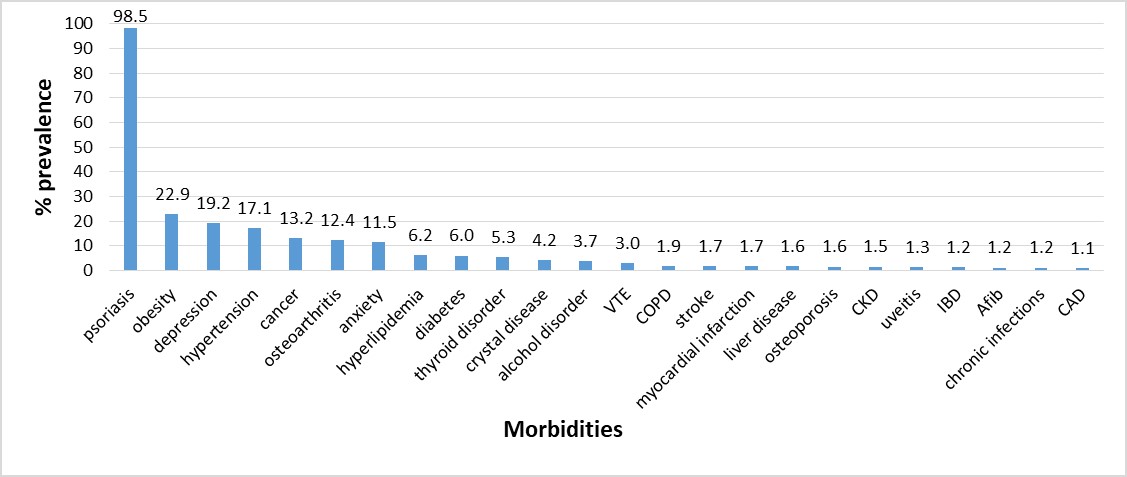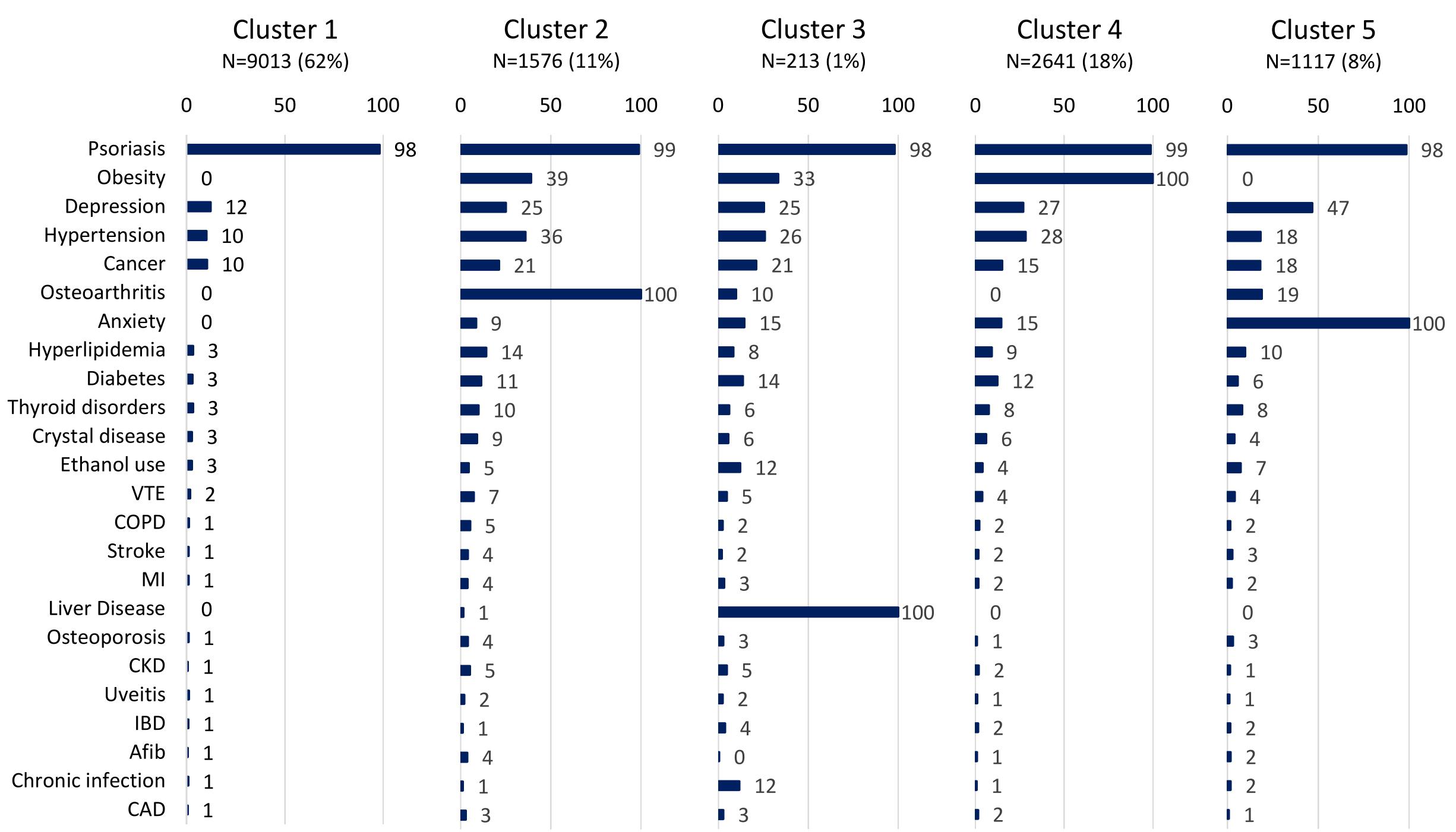Session Information
Date: Friday, November 6, 2020
Session Type: Poster Session A
Session Time: 9:00AM-11:00AM
Background/Purpose: Psoriatic arthritis (PsA) patients have a higher prevalence of cardiometabolic and other morbidities compared to the general population. Studies suggest that a single clinical variable cannot adequately predict which PsA patients will have worse outcomes; therefore studying these morbidities together will provide better insight. Multimorbidity refers to the simultaneous presence of ≥2 morbidities, and certain morbidities are more likely to cluster than others. We used The Health Improvement Network (THIN) database to identify prevalent multimorbidity clusters in PsA.
Methods: We used the THIN database (2000-14) to identify adults (aged 18–89 years) with PsA using the Read code for PsA (positive predictive value- 85%). THIN contains systematically and prospectively recorded data by general practitioners in the UK. Morbidities in PsA were selected by clinical relevance and by previous reports, and only those occurring ≥1% were included. Multimorbidity clusters were identified using K-median clustering, which is an unsupervised machine learning algorithm which groups data into a user-specified number (k) of clusters based on a set of variables (here morbidities). The optimal number of clusters was determined using the elbow method. K-median clustering was run on the dataset for a range of values of k (e.g., k from 1 to 10); and for each value of k, sum of squared errors (SSE) was calculated. In a scree plot of the SSE for each value of k, we identified the “elbow” on the arm (graph line), which was taken as the best value of k.
Results: There were 14,560 PsA patients identified in the THIN database from 2000-14, with a mean age of 47 ±15 years and 50% males. Psoriasis was the most prevalent morbidity (98.45%), followed by obesity (22.9%) and depression (19.2%) (Figure 1). The optimal number of clusters determined using the elbow method was 5. The five clusters included relatively healthy (62%), osteoarthritis (11%), liver disease (1%), obesity (18%), and anxiety/depression (8%) (Figure 2). Males had higher odds of being in the anxiety/depression (OR=2.11, 95% CI 1.86 to 2.40), obesity (OR=1.54, 95% CI 1.41 to 1.68), and osteoarthritis (OR=1.47, 95% CI 1.32 to 1.64) clusters compared to the healthy cluster.
Conclusion: Distinct multimorbidity clusters were identified in PsA patients in the THIN database. Further research is needed to look for common pathophysiologic mechanisms within each clusters and comparison with the general population. The identified clusters could have different effects on important outcomes in PsA.
 Figure 1. Prevalence of morbidities in psoriatic arthritis
Figure 1. Prevalence of morbidities in psoriatic arthritis
 Figure 2. Multimorbidity clusters in psoriatic arthritis
Figure 2. Multimorbidity clusters in psoriatic arthritis
To cite this abstract in AMA style:
Karmacharya P, Poudel D, Crowson C, Davis J, Wright K, Ogdie A. Multimorbidity Clusters in Psoriatic Arthritis: A Population-Based Study [abstract]. Arthritis Rheumatol. 2020; 72 (suppl 10). https://acrabstracts.org/abstract/multimorbidity-clusters-in-psoriatic-arthritis-a-population-based-study/. Accessed .« Back to ACR Convergence 2020
ACR Meeting Abstracts - https://acrabstracts.org/abstract/multimorbidity-clusters-in-psoriatic-arthritis-a-population-based-study/
